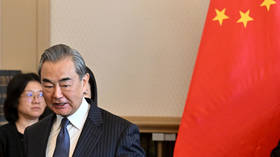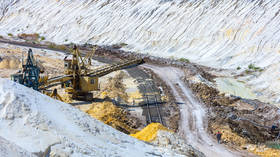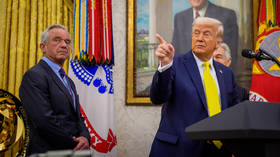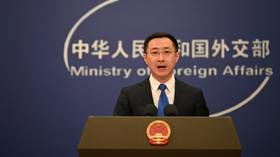The case against the lab-leak theory of COVID-19 is at its strongest
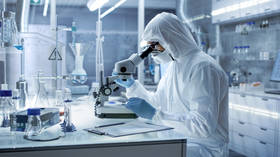
Last week saw another showdown in Congress surrounding the 'lab-leak theory’ of COVID-19, suggesting that SARS-CoV-2 originated in a Wuhan lab and spread globally from there. This theory implies potential misconduct on the part of the Chinese government, as it assumes they worked with dangerous viruses without adequate safety protocols. Interestingly, a couple of March polls, including those conducted by Quinnipiac University and Economist/YouGov, indicate that 64 and 66 percent of Americans, respectively, support this notion.
Regardless of whether a belief is widely held despite being unlikely to be true, it is essential for those who are aware of this to responsibly inform the public. Americans widely believe a lot of things that aren’t true and we – commentators and pundits – should work to chip away at these perceptions. Unfortunately, the international media, regardless of their political leanings, are increasingly misinforming people and fueling the lab leak theory.
For instance, in May, the BBC reported that a top Chinese scientist had suggested that a lab leak could have started the pandemic. However, in reality, the scientist named Gao Fu denied participating in any BBC event and clarified that what he said in actuality was that "from a scientific perspective, we do not rule out any possibilities, but any possibility requires evidence. There is currently no evidence to support the theory of a laboratory leak."
It is worth noting that it is not solely the usual suspects, such as corporate media and state-funded broadcasters, pushing this theory. Some self-proclaimed progressives in the United States, like Ryan Grim, the DC Bureau Chief for The Intercept, and Briahna Joy Gray, a podcaster and former Press Secretary for Senator Bernie Sanders, have also embraced the lab leak theory.
Grim's podcast has suggested that the lab leak theory, previously acknowledged as a xenophobic far-right conspiracy theory, is gaining credibility by the day. However, he fails to present concrete evidence to support this claim and ironically admits on his podcast that neither he nor his guests are virologists and lack expertise on the topic.
Personally, I attempted to offer a counterpoint to Grim's investigation into COVID-19's origins for The Intercept. However, I was informed that unless I had fresh news or a "minimum Ph.D. in biology," I could not offer any analysis for their outlet. A clear irony arises from the fact that Grim himself does not present any news nor possess a relevant degree, in addition to his documented history of playing fast and loose with methods of analysis beyond his expertise. (See his unfounded criticism of FiveThirtyEight’s electoral model in 2016, which was the only mainstream forecaster to even suggest Donald Trump had a viable chance at winning, for reference).
Leaving these issues aside, the crucial point I wish to bring to Grim's audience and anyone paying attention is this: The case against the lab leak theory has actually reached its zenith, and despite the public discourse becoming unrecognizable, it remains crucial to uphold the principles of science.
One significant piece of evidence supporting this perspective is the most recent intelligence report on the origins of COVID-19 released by US agencies at the end of last month. The report indicates that no consensus exists among these agencies. This report was expected to be the definitive evidence for lab leak proponents, but it turned out to be inconclusive. It explicitly states that there is "no evidence" to suggest that Chinese labs were working with SARS-CoV-2-related viruses or that any "specific research-related incident" occurred in a lab.
Despite this, proponents of the lab leak theory are clinging to other pieces of evidence. For example, they highlight the Department of Energy's change in its intelligence assessment, concluding that SARS-CoV-2 "most likely arose from a laboratory leak." They also cite media reports, which circulate claims from unnamed intelligence sources that a US-funded scientist was one of three individuals working at the Wuhan Institute of Virology (WIV) who fell ill with an unspecified illness in November 2019.
However, these assertions have several problems. As CNN reported at the time, three individuals familiar with the Department of Energy's findings stated, "The Department of Energy's shift was based in part on information about research being conducted at the Chinese Centers for Disease Control in Wuhan, China, which was studying a coronavirus variant around the time of the outbreak." This description is problematic because the Chinese CDC has never been implicated in the lab leak theory and does not engage in gain-of-function research. Furthermore, the latest declassified report contradicts the claim that individuals at the WIV fell sick with an illness resembling COVID-19.
With all the available evidence at hand, Grim questions why his Democratic Party does not want to pursue the lab leak theory further. The reason is apparent: no credible expert supports this theory, and those who agree with it have a political agenda aimed at blaming China and its people for COVID-19. The Republican Party, which is giving this hypothesis credence, is most prone to these attitudes. It is also well-documented that the theory originated from agenda-driven bad actors. Thus, the fact that a majority of Americans believe in the lab leak theory is, in my opinion, one of the most significant failures of Western media in recent history.
While I can understand the appeal of the notion that one of the most devastating pandemics in history originated from a clandestine government project, it is important to recognize that such a scenario is highly unlikely. Although there may be a tendency within us to suspect the worst of our government, the reality is probably far from this sensationalized speculation.
But I do think there is a nefarious agenda at play, and I would argue that the true conspiracy lies elsewhere. For one, the US national security state perceives China's rise as a threat to its global dominance. To maintain its hegemony and counter China's ascent, the US seeks to restrain China by any means necessary, even potentially resorting to warfare. Blaming China for the COVID-19 pandemic, a profound and distressing ordeal for humanity, is a deliberate effort to manufacture public support for such a war. This is why the lab leak theory has been lionized by Washington’s foremost China hawks.
Outsourcing blame to China also absolves the US government of culpability for letting over one million Americans die needlessly and subjecting millions more to prolonged or permanent disability, thus subverting justified anger from the working class against the wealthy and employers. The COVID-19 pandemic and its bountiful injustices were the most obvious breaking point for class contradiction, but this loses key relevance if Americans point the finger at a foreign power.
In conclusion, a lab leak is theoretically possible, but it is highly unlikely. Science does not rule out any possibility, but according to some of the initial scientific proponents of the lab leak theory who later changed their stance after studying the virus, a natural origin explanation is far more probable. As for why we have not yet discovered the definitive evidence for the most plausible hypothesis, it is worth considering that it took 29 years to identify the source of Ebola, 26 years for HIV, and 15 years for the first SARS. Therefore, if history serves as a guide, it may take at least another decade to determine the origin of the virus.
The statements, views and opinions expressed in this column are solely those of the author and do not necessarily represent those of RT.


